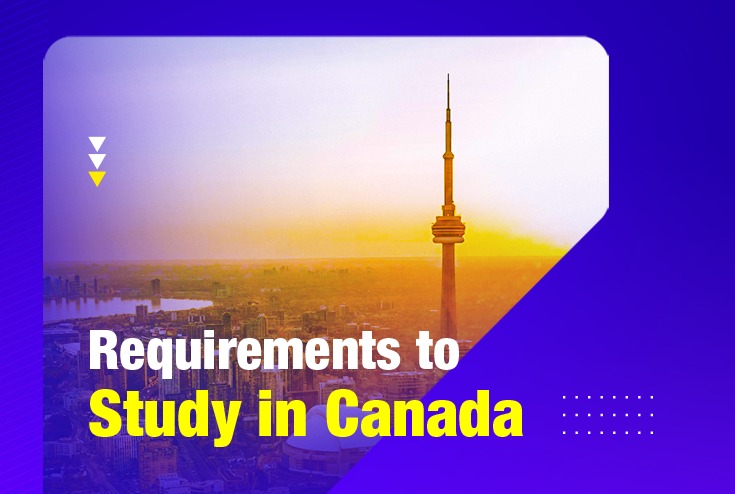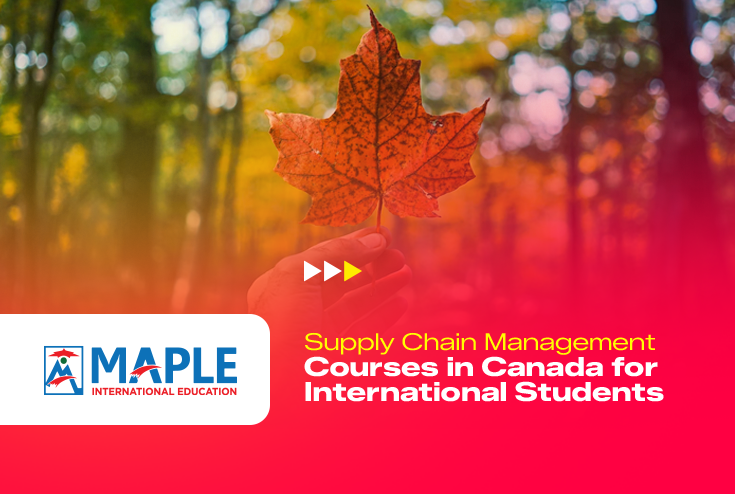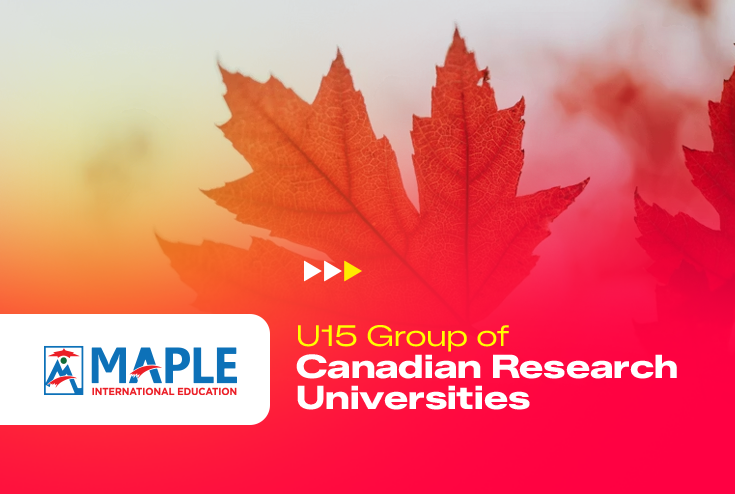
Requirements to Study in Canada from Nepal
Are you dreaming of studying in one of the world's most welcoming and high-quality education systems? Canada, with its stunning landscapes, diverse cultures, and prestigious universities, has become a top choice for Nepalese students seeking a brighter future. But where do you begin? Understanding the requirements to study in Canada from Nepal is the crucial first step in turning your dream into reality.
In this comprehensive guide, we'll walk you through the essential requirements, including academic qualifications, language proficiency tests, financial necessities, and the visa application process.
With over 11 years of experience guiding students like you, we’re here to provide you with all the information you need to make informed decisions about your education. By the end of this blog, you’ll be ready to take a leap towards studying in Canada, unlocking endless opportunities for your future. Are you ready to embark on this exciting journey? Let’s explore everything you need to know!
General Requirements to Study in Canada from Nepal
Before diving into specific requirements, it’s essential to have a general understanding of what is needed for Nepalese students to study in Canada. These include:
- A valid passport
- Acceptance from a recognized Canadian educational institution
- Proof of financial stability
- Health insurance coverage
Additionally, those looking into the requirements to study in Canada after graduation from Nepal will need to provide documentation of their previous academic credentials.
Academic Requirements to Study in Canada from Nepal
For undergraduate programs, Nepalese students must have completed high school or diploma. Similarly, for postgraduate studies, a relevant undergraduate degree is required.
GPA Required to Study in Canada
Most Canadian universities require a minimum GPA of around 2.4 to 3.0 on a scale of 4.0 for bachelor's programs. For master’s programs, the expectation is typically higher, often necessitating a minimum GPA of 3.0 or equivalent. It is essential to check the specific requirements of the institution you are applying to.
Bachelor’s Requirements to Study in Canada from Nepal
To gain direct admission to Bachelor’s program in Canada:
- You must have a strong academic record, typically with good results in high school.
- An IELTS score of 6.0 overall is commonly required.
- For students with lower academic scores, a diploma program can serve as a pathway to a bachelor’s degree.
Note: Some bachelor’s programs may have specific prerequisite subjects or grade requirements, depending on the field of study.
Diploma and Advanced Diploma Programs
For Nepalese students who have completed their +2 (higher secondary education), Diploma or Advanced Diploma programs in Canada are popular options. To qualify for a diploma program in Canada, you need to have:
- A minimum of 55% in your academic results
- An IELTS score of 6.0 overall
Upon completing a two-year diploma or advanced diploma, students are eligible for a Post-Study Work Permit (PSWP).
Master’s Requirements to Study in Canada from Nepal
If you plan to pursue a master's degree in Canada, you'll need to have completed a four-year bachelor’s degree from a recognized institution, often with a strong academic record. Many institutions require an IELTS score of 7.0, with no band less than 6.0. Additionally, relevant work experience may be required for certain programs. It is suggested to check the specific admission criteria for your chosen program, as they may vary by institution.
Language Proficiency Requirements
Language proficiency is crucial for success in Canadian education. Most institutions require students to demonstrate their English skills since the lectures are delivered in English language in Canada.
English Proficiency Tests to Study in Canada
Commonly accepted tests include:
- IELTS (International English Language Testing System): A minimum score of 6.5 is generally required.
- TOEFL (Test of English as a Foreign Language): A minimum score of 86-90 is typically necessary.
- PTE (Pearson Test of English): Many institutions accept PTE scores, often requiring a minimum of 60-65 for postgraduate programs.
Financial Requirements
To secure a Canadian study permit, students must provide financial proof that they can support themselves during their studies for at least a year. The documents include:
- Bank statements showing a minimum balance of CAD 20,635 (approx. NPR 20.3 lakhs)
- Proof of payment for tuition and accommodation.
- A financial support letter from a sponsor, if applicable.
Scholarships in Canada for Nepalese Students
There are various scholarships available for Nepalese students, including government scholarships and university-specific awards. Researching these opportunities can significantly reduce financial burdens.
How to Apply for a Canada Study Permit and Visa from Nepal
Student Visa vs Study Permit: What is the Difference and Necessity?
When planning to study in Canada, it's essential to understand the difference between a visa and a study permit. A visa is an official document that allows you to enter Canada, while a study permit is a document that grants you the permission to study at a designated learning institution (DLI) in Canada. Essentially, a study permit is necessary for international students who want to study for more than six months.
It is to be noted that you will need a study permit to study in Canada regardless of the type of visa you hold. Also, having a permit does not give you an entrance to the country, you will need a visa to move to Canada.
Step-by-Step Process for Study Permit and Visa Application
The process to apply for both a Canada study permit and visa is combined. Here's a step-by-step guide to help Nepalese students navigate the process:
Apply for Admission
The first step begins by applying to a recognized Canadian educational institution and securing admission.Obtain a Letter of Acceptance
Once admitted, the institution will provide you with an official Letter of Acceptance (also known as a Letter of Admission). This is required for your visa and study permit application.Pay Tuition and Prepare Documents
Secure your seat by paying any necessary tuition deposits. Then, start gathering all required documents for your visa and study permit, including:
- Passport
- Proof of financial support (bank statements)
- Tuition fee receipt
- Language proficiency test results (e.g., IELTS, TOEFL)
- Statement of Purpose (SOP) that you’ll write on your own
- No Objection Certificate (NOC) from the Ministry of Education (MOE)
Medical Examination
You may need to undergo a Medical Exam before or after submitting your study permit application, based on IRCC’s request.Bio-metrics Appointment
After submitting your application, you must book an appointment for bio-metrics (fingerprints and photos) at the Canada Visa Application Center (CVAC).
Required Documents for Study Permit and Visa Application to Canada from Nepal
When applying for a Canada study permit online, you will need the following documents:
- Letter of Acceptance from the applied educational institution.
- Proof of Identity: Passport, national identity card.
- Proof of Financial Support: Bank statements, scholarships, or sponsorship letters.
- Medical Exam Results (if required).
- Tuition Fee Receipt.
- Bio-metric Fee Payment: Required for bio-metric processing.
- Letter of Explanation: Statement of Purpose (SOP) explaining why you want to study in Canada.
After Submitting Your Study Permit Application
Once you've submitted your application:
- Your application will be assessed based on the documents you provided.
- You may be asked for additional documents or to undergo a medical exam if not submitted initially.
- Processing time for study permits can range from 8 to 12 weeks.
Approval Process
- Once your application is approved, you will receive a Passport Request Letter to submit your passport for visa stamping.
- You’ll also receive a Letter of Introduction (LOI), also known as the Study Permit Approval Letter. Present this at the Canadian border to receive your study permit.
- If your study program includes work experience (like a co-op), you’ll also receive a Work Permit upon entry.
Post-Study Opportunities in Canada for Nepalese Students
Canada provides opportunities for their students to work in the country after the completion of their respective study programs.
Requirements for Work Permit in Canada from Nepal
After graduation, international students can apply for a Post-Graduation Work Permit (PGWP), allowing them to work in Canada. To qualify, students must have:
- Completed a program of study that is at least eight months long.
- Received a degree, diploma, or certificate from a recognized institution.
This permit can help with valuable work experience and a potential pathway to permanent residency.
Conclusion
Studying in Canada can be a transformative experience for Nepalese students. By learning about the requirements to study in Canada from Nepal, like academic qualifications, language skills, and visa processes, you can prepare yourself for the application process for your smooth and successful departure and then life in Canada ahead. Canada is full of opportunities for both personal and professional growth, making it a great choice for students from around the world.
Take the time to research, gather your documents, and seek guidance as needed to ensure a smooth application process. You can always pay a visit to our consultancy and receive personalized career guidance from the experts. Your future in Canada awaits!
FAQs - Requirements to Study in Canada from Nepal
What are the requirements to study in Canada for Nepalese students?
Nepalese students typically need a valid passport, an acceptance letter from a recognized Canadian institution, proof of financial support, and a study permit application.
What qualifications do I need to study in Canada?
For undergraduate programs, you need a completed high school diploma. For postgraduate programs, a relevant bachelor’s degree is required. Additionally, proof of English language proficiency (e.g., IELTS) is necessary.
How much bank balance is required for a Canada student visa from Nepal?
You generally need to show a minimum balance of CAD 20,635 (approx. NPR 20.3 lakhs) to prove you have sufficient funds to cover tuition fees and living expenses.
What are the total expenses to study in Canada from Nepal?
Total expenses can range from CAD 20,000 to CAD 50,000 per year, including tuition, accommodation, living costs, and insurance.
What is the IELTS score required for Canada?Most Canadian institutions require an IELTS score of 6.0 for undergraduate programs and 6.5 to 7.0 for master’s programs, depending on the institution and program.
What is the student visa success rate for Canada from Nepal?
The student visa success rate for Nepalese applicants is generally high, often ranging from 60% to 80%, depending on the quality of the application and the applicant's financial stability.
What are PTE Requirements for Masters in Canada?
For students interested in pursuing a master's degree, universities often look for PTE scores of 58 or above. However, specific requirements may vary, so it’s vital to verify the details with your chosen institution.
Also Read:
Visa Application Mistakes: What to avoid for a smooth process to Canada




